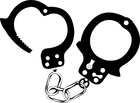 China’s domestic car makers are continuing their drive to develop their own brands in their search for bigger profits outside their foreign joint ventures, with Dongfeng Motor (HKEx: 489) the latest to join that march as it prepares to revive its mothballed namesake brand. But success for these new initiatives is far from guaranteed, and Dongfeng and the many other Chinese automakers to announce similar own-brand plans in recent months certainly aren’t preparing to abandon their lucrative foreign joint ventures anytime soon. Dongfeng itself recently launched another new brand, called Venucia, with longtime Japanese partner Nissan (Tokyo: 7201) (previous post); and more recently news has emerged that it is in talks for yet another foreign joint venture with France’s Renault (Paris: RENA). (previous post) According to a Chinese media report, Dongfeng is currently working on a plan to revive its namesake brand using technology from France’s Peugeot (Paris: UG), and could show the first models at the Shanghai Auto Show next spring. (English article) China auto buffs may want to have a look at this report, as it contains a detailed history of the Dongfeng name, which was China’s first self-developed brand with its launch in the late 1950s. But production of the car was short-lived, and the brand has been absent from Chinese roads now for more than half a century. Dongfeng’s plan follows a range of similar ones by other Chinese automakers, all of which also have successful joint ventures with major foreign automakers. News recently emerged that SAIC (Shanghai: 600104), China’s largest automaker which has joint ventures with GM (NYSE: GM) and Volkswagen (Frankfurt: VOWG), was planning to revive its Shanghai brand of cars. (previous post) At the same time, FAW Auto has been working on a 1.8 billion yuan plan to revive Hongqi, or Red Flag, a brand that was once synonymous with luxury cars in China but ceased production in the 1980s. Meantime, Beijing-based BAIC, which has a joint venture with Mercedes, is also rolling out its own brand cars based on technology it purchased from Swedish car maker Saab. Many of these plans have the common trait of using older foreign technology as their basis, which is probably a smart move as all of these Chinese companies are relatively inexperienced at developing their own new models. Still, launching a new brand is far from easy, as it requires new infrastructure to service such brands and also marketing campaigns to raise public awareness. What’s more, the market is already quite crowded and showing signs of slowing down. The Hongqi, Shanghai and now Dongfeng initiatives all look smart from a marketing perspective, as all will draw on well-known historical brands that should quickly grab attention from Chinese consumers. At the end of the day, I would expect some of these brands to succeed, with perhaps the Shanghai and Hongqi brands having the best chance for gaining some traction with domestic car buyers. The ones that fare worse will end up costing their developers big losses, and could easily see some of these older brands returned to the historical junk pile once again.
China’s domestic car makers are continuing their drive to develop their own brands in their search for bigger profits outside their foreign joint ventures, with Dongfeng Motor (HKEx: 489) the latest to join that march as it prepares to revive its mothballed namesake brand. But success for these new initiatives is far from guaranteed, and Dongfeng and the many other Chinese automakers to announce similar own-brand plans in recent months certainly aren’t preparing to abandon their lucrative foreign joint ventures anytime soon. Dongfeng itself recently launched another new brand, called Venucia, with longtime Japanese partner Nissan (Tokyo: 7201) (previous post); and more recently news has emerged that it is in talks for yet another foreign joint venture with France’s Renault (Paris: RENA). (previous post) According to a Chinese media report, Dongfeng is currently working on a plan to revive its namesake brand using technology from France’s Peugeot (Paris: UG), and could show the first models at the Shanghai Auto Show next spring. (English article) China auto buffs may want to have a look at this report, as it contains a detailed history of the Dongfeng name, which was China’s first self-developed brand with its launch in the late 1950s. But production of the car was short-lived, and the brand has been absent from Chinese roads now for more than half a century. Dongfeng’s plan follows a range of similar ones by other Chinese automakers, all of which also have successful joint ventures with major foreign automakers. News recently emerged that SAIC (Shanghai: 600104), China’s largest automaker which has joint ventures with GM (NYSE: GM) and Volkswagen (Frankfurt: VOWG), was planning to revive its Shanghai brand of cars. (previous post) At the same time, FAW Auto has been working on a 1.8 billion yuan plan to revive Hongqi, or Red Flag, a brand that was once synonymous with luxury cars in China but ceased production in the 1980s. Meantime, Beijing-based BAIC, which has a joint venture with Mercedes, is also rolling out its own brand cars based on technology it purchased from Swedish car maker Saab. Many of these plans have the common trait of using older foreign technology as their basis, which is probably a smart move as all of these Chinese companies are relatively inexperienced at developing their own new models. Still, launching a new brand is far from easy, as it requires new infrastructure to service such brands and also marketing campaigns to raise public awareness. What’s more, the market is already quite crowded and showing signs of slowing down. The Hongqi, Shanghai and now Dongfeng initiatives all look smart from a marketing perspective, as all will draw on well-known historical brands that should quickly grab attention from Chinese consumers. At the end of the day, I would expect some of these brands to succeed, with perhaps the Shanghai and Hongqi brands having the best chance for gaining some traction with domestic car buyers. The ones that fare worse will end up costing their developers big losses, and could easily see some of these older brands returned to the historical junk pile once again.
Bottom line: Dongfeng’s revival of its namesake brand is part of a trend by Chinese automakers to develop their own brands, with about half of these new initiatives likely to succeed.
Related postings 相关文章:
◙ 2 China Car Brands Set for Renaissance? “上海”和“红旗”汽车将重出江湖
◙ Nissan, VW Jump on China Brand Bandwagon 日产和大众进军中国低端车市场
◙ Geely Leans on Struggling Volvo 吉利依靠处于困境中的沃尔沃



 China’s formerly red-hot auto market looks set to stall this year, but you would never know that from looking at luxury car sales. The only problem from a domestic investor’s point of view is that the market is almost completely monopolized by foreign firms, Germans in particular. The country’s 3 top luxury car sellers, Volkswagen’s (Frankfurt: VOWG) Audi, BMW (Frankfurt: BMW) and Mercedes-Benz (Frankfurt: DAI) all saw their China sales rise 30 percent or more in the first 10 months of this year. (
China’s formerly red-hot auto market looks set to stall this year, but you would never know that from looking at luxury car sales. The only problem from a domestic investor’s point of view is that the market is almost completely monopolized by foreign firms, Germans in particular. The country’s 3 top luxury car sellers, Volkswagen’s (Frankfurt: VOWG) Audi, BMW (Frankfurt: BMW) and Mercedes-Benz (Frankfurt: DAI) all saw their China sales rise 30 percent or more in the first 10 months of this year. (